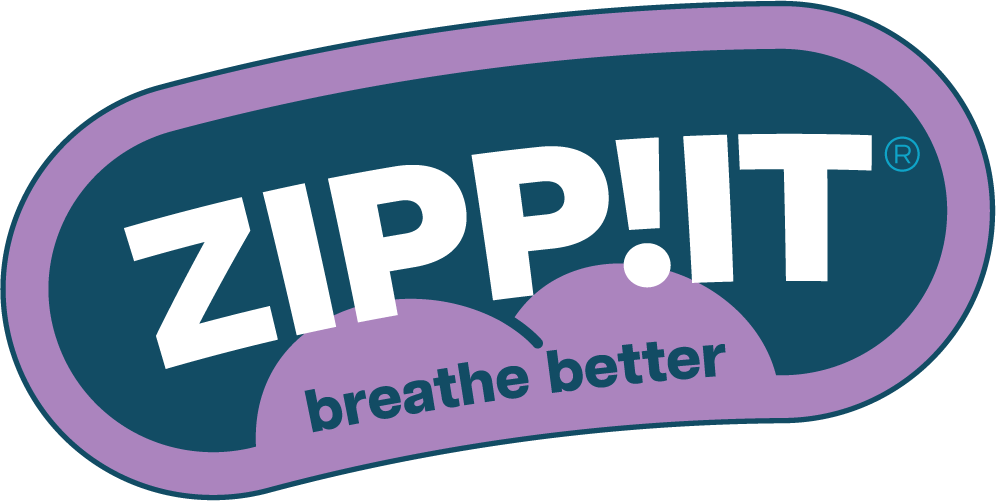Nasal congestion and its surprising impact on anxiety
Do you often suffer from a blocked nose? You’re not alone.
Many people don’t realize that nasal congestion and anxiety are closely linked. This unexpected relationship is getting increasing attention from scientists. A blocked nose not only changes your breathing, but also affects your stress levels and mood. Breathing experts are increasingly emphasizing how important free nasal breathing is for our nervous system and mental balance.
In this article, you’ll discover how nasal congestion and anxiety reinforce each other, why healthy nasal breathing is so crucial, and what solutions exist to tackle both problems. Because being able to breathe freely through your nose is much more important than you might think!

The Hidden Relationship Between Nasal Congestion and Stress
Most people see a blocked nose as a temporary inconvenience, but few realize its impact on our mental health. Recent research shows a direct link between breathing problems and stress. When your nose is blocked, you have to breathe through your mouth, which activates stress hormones.
This relationship also works both ways. Stress can actually cause nasal congestion by dilating the blood vessels in your nasal cavity. This creates a vicious cycle: stress leads to more nasal congestion, which in turn causes more stress. Neurologists and breathing specialists have found that this cycle can significantly affect your well-being and anxiety levels.
Some ways nasal congestion worsens stress:
-
It disrupts your sleep quality
-
It reduces oxygen supply to your brain
-
It activates your fight-or-flight response
-
It disrupts the production of stress-reducing hormones
-
It can lead to chronic fatigue
Understanding these connections makes it clear why addressing nasal congestion not only improves your breathing, but can also positively impact your mental health.
How a Blocked Nose Affects Your Nervous System and Anxiety
When your nose is blocked, you breathe through your mouth. This may seem harmless, but it has major consequences for your nervous system and can intensify anxiety.
Normal nasal breathing stimulates the parasympathetic nervous system, which promotes relaxation and calm. This is known as the “rest and digest system.” Nasal breathing also produces nitric oxide, a molecule that dilates blood vessels and lowers blood pressure.
When you breathe through your mouth, the opposite happens:
-
Your fight-or-flight mode is activated
-
Your heart rate increases and your breathing becomes more shallow
-
More stress hormones are produced
-
Nitric oxide production drops drastically
-
Your breathing regulation is disrupted, which can heighten anxiety
Studies show a direct connection between chronic mouth breathing and increased anxiety. People who habitually breathe through their mouth are more likely to suffer from anxiety disorders. Their breathing regulation becomes disturbed, which can lead to mild hyperventilation—a well-known feature of panic attacks.
The way we breathe directly affects how our brain functions. This makes it clear why addressing nasal congestion is about more than just improving physical comfort; it’s essential for managing anxiety.
Mouth Breathing vs. Nasal Breathing: Impact on Your Mental Health
The way you breathe directly influences your mental state.
With nasal breathing, air is filtered, warmed, and humidified before reaching your lungs. Additionally:
-
It stimulates nitric oxide, which reduces anxiety
-
It improves oxygen uptake by 10-15%
-
It activates the lower parts of the lungs for calming breaths
-
It regulates your heart rhythm and lowers blood pressure
-
It improves your sleep quality
-
It activates brain areas responsible for relaxation and focus
Mouth breathing due to nasal congestion, on the other hand, has negative effects:
-
Your breathing becomes shallower and faster, which increases anxiety
-
There is a higher risk of hyperventilation
-
It disrupts the oxygen-carbon dioxide balance
-
It raises your heart rate and stress level
-
It stimulates the part of your nervous system associated with stress
Research shows that people who regularly breathe through their mouth are more likely to suffer from sleep disorders, concentration problems, and anxiety disorders. By becoming aware of your breathing pattern and addressing nasal congestion, you take an important step toward a calmer nervous system and better mental health.

Practical Solutions for Free Breathing and Less Anxiety
Now that you understand the connection between nasal congestion and anxiety, it’s time for solutions!
One of the most effective ways to tackle nasal congestion is by using nasal strips. These widen your nasal passages and instantly increase airflow. This not only improves your breathing, but can also lower your anxiety levels by allowing your body to get more oxygen.
Other effective methods include:
-
Steam showers or inhalations with eucalyptus or menthol
-
Nasal rinsing with saline solutions
-
Increasing humidity in your living space
-
Specific breathing exercises
-
Use of nasal strips
-
Using mouth tape during sleep
Breathing therapists and ENT doctors recommend combining these methods. By integrating them into your daily routine, you can relieve nasal congestion and reduce anxiety. Even if you’ve been breathing through your mouth for years, with the right tools you can return to healthy nasal breathing.
Consistency is key. Start by addressing physical obstructions with nasal strips, then work on developing healthy breathing habits. Many people notice a difference in their anxiety and stress levels within just a few days.
Restore Your Breathing Balance for a Calmer Life
The link between nasal congestion and anxiety is stronger than most people realize.
By effectively addressing nasal congestion with tools like nasal strips and other techniques, you help your body return to a natural, calm state. This can lead to major improvements in both physical comfort and mental well-being. Experts confirm that the quality of your breathing directly affects your anxiety and stress levels.
Start restoring your nasal breathing today and experience the difference. Clearing your nose may be the first step toward a calmer life with less anxiety. Try nasal strips as a quick solution and combine them with other techniques for lasting results.
Take action now and discover how a simple change in your breathing can make a world of difference. You deserve a life without the double burden of nasal congestion and anxiety!


